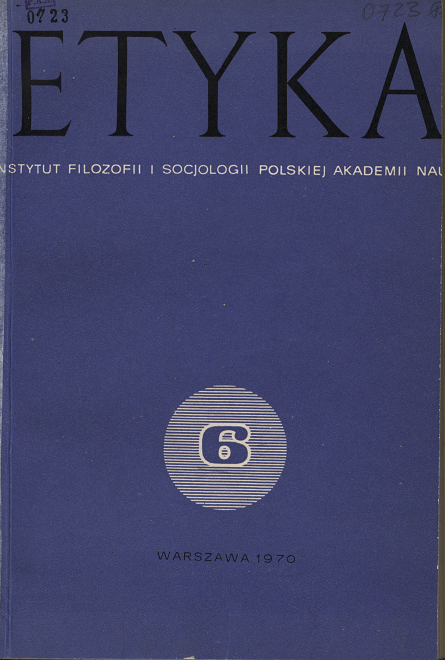Katolicka doktryna prawa natury
Abstrakt
After a brief outline of the history of the catholic doctrines of natural law the author concludes that although the doctrine itself has not changed, changes in its official interpretation and in the conclusions drawn from it are traceable. A rigid, invariable catholic natural law, universally binding for all times, all societies, and all men, has transformed into a natural law of variable content. It has become variable depending on both the socio-historical circumstances and on the different situations and different mutual relations of various groups in the society. In this way the function of law has changed. Whereas to Pius XI natural law was still an expression of a static attitude towards society contributing to the restitution of a statical medieval system and securing the control of morality by the church, nowadays it should fulfil the two following functions: owing to its variability it should facilitate the dynamics of development, and owing to the fundamental invariability of its basic principles it should secure only a single consistent direction of development.Pobrania
Opublikowane
Numer
Dział
Licencja
Prace publikowane w czasopiśmie ETYKA udostępniane są na podstawie licencji Creative Commons Attribution No Derivatives 4.0 International (CC BY-ND), tj. uznanie autorstwa-Bez utworów zależnych. Oznacza to, że Autorki i Autorzy zachowują autorskie prawa majątkowe do utworów i wyrażają zgodę, aby ich prace były zgodnie z prawem ponownie wykorzystywane do dowolnych celów, także komercyjnych, za wyjątkiem tworzenia utworów zależnych (dzieł pochodnych), bez konieczności uzyskania uprzedniej zgody ze Autora lub wydawcy. Artykuły mogą być pobierane, drukowane, powielane i rozpowszechniane z zastrzeżeniem konieczności poprawnego oznaczenia autorstwa oraz oryginalnego miejsca publikacji. Autorzy zachowują prawa autorskie do wspomnianych utworów bez innych ograniczeń.



